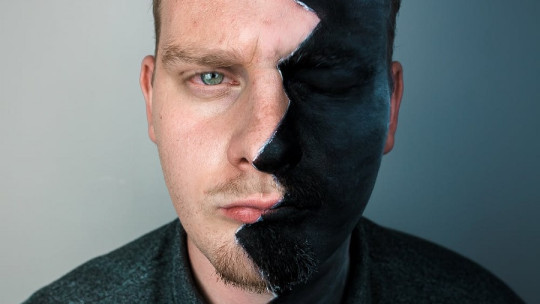
What is dissociation? We can define it as a defense or protection mechanism that our brain has to disconnect from reality. It is activated in moments when reality exceeds our resources to face a stressful situation: our brain manages to disconnect from what overwhelms us.
As I said, it is a defense mechanism; That is, it will be activated instinctively to protect us from fear, pain or immensely negative emotions. This phenomenon occurs mainly when we have found ourselves faced with traumatic situations, especially those related to childhood (abuse and/or neglect in care). However, it also occurs in people who have experienced other types of situations such as war, accidents, attacks (highly stressful situations)… In addition, we can see dissociation in other types of conditions, such as anxiety or depression.
It should be noted that We can all experience or have experienced symptoms of dissociation such as when we live in automatic mode, ignoring what is happening around us.
What happens at the brain level?
It is a lack of emotional connection, that is, the brain disconnects emotions, also literally: what happens is that the brain turns off the anterior cingulate cortex (responsible for the autonomic reactions of emotion and memory storage) , so we lose the conscious regulation of our actions.
On the other hand, the amygdala (center of emotions) produces cortisol, a hormone that inhibits the function of the hippocampus (responsible for giving meaning to experiences and locating them temporally).
Finally, opioids are produced, which are neurotransmitters that act as analgesics.
With all this, it is explained that a dissociated person, when talking about the event, does not express intense emotions and/or even don’t remember anything.
Dissociative disorders
As symptomatology of dissociation, we can see:
Although dissociation may have a protective function, can also become pathological when the person ends up living away from reality as a mechanism to cope with it. The pathologies or symptoms related to this mechanism are as follows.
1. Dissociative amnesia
This is a more serious memory loss than ordinary forgetfulness. Relevant personal information or information about important people is forgotten, usually related to the traumatic moment. In turn, dissociative fugue may occur (sudden trip away from home, with the impossibility of remembering your past and identity confusion).
2. Dissociative identity disorder (formerly known as multiple personality)
In this disorder the person alternates different identities, which may have their own history and characteristics. This disorder often presents with dissociative amnesia.

3. Depersonalization
Disconnection in which you feel like you are outside your body, as an observer of what happens. This symptom does not necessarily imply pathology, since it can occur in high peaks of stress, in a specific manner.
4. Derealization
In this case we talk about feel that reality is distorted, you feel like it’s not real or like you’re watching a movie. Like depersonalization, this symptom can occur in high peaks of stress without being pathological.
How can dissociation be treated?
As we have said before, dissociation is associated with traumatic experiences, preventing us from feeling or remembering what happened, allowing us to “survive.” But it is not the mechanism that allows the healing of the discomfort that this experience generates in us.
For this reason, the end of the treatment in these cases is that the person manages to integrate that experience by changing the meaning, in the sense that it is something that is not dangerous today, since the circumstance is no longer present. It is about the person achieving more adaptive regulation mechanisms.
We must take into account that the person has a traumatic history behind him and has not had the resources to face it, so returning to that experience generates a very intense emotional state (which probably still overwhelms him) from which we will have to leave and enter. constantly, depending on what the person allows us: it is essential to go at their pace.
It is important to be in the hands of a good professional, such as the specialized psychologists of PsychoAlmería who we serve both online and in person. And in addition to therapy, which is essential, we can establish other resources that the person can build, such as, for example, writing in a diary, in order to be able to remember day-to-day events and/or the practice of mindfulness, in order to be aware of the present moment and thus connect again with our body.








